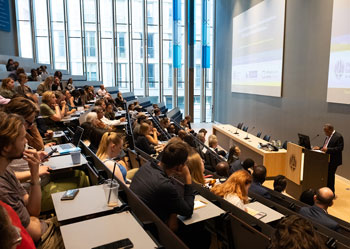News & Events
 Find the latest news below, and our event calendar on the right.
Find the latest news below, and our event calendar on the right.
Would you like to stay updated on our latest research news, publications and events? Please subscribe to our monthly newsletter!
Posted on 9 November 2011, last modified on 9 October 2023
01 October 2020
On the occasion of the Africa 2020 year, the ASCL has created Infosheets about the countries that became independent in 1960. Of the seventeen colonies gaining independence in that year, Nigeria was the sixteenth one: on October 1. Read about Nigeria's political, demographic, socio-economic and agricultural developments in the past 60 years. Also find out about Nigeria's leaders of independence in the ASCL web dossier!
22 September 2020
On 10 September, Dr William Ellis (University of the Western Cape) gave an intriguing webinar entitled 'Walking with herders: Animal and plant ontologies in Namaqualand'. Dr Ellis talked about his project with Nama pastoralists in the dry arid regions of the Northern Cape, South Africa, where he and his research group have been walking with herders and learning from them literally 'on the hoof'. As part of the webinar, Dr Ellis showed photos of herders and animals in their environment, taken by Clement Cupido. Take a look at these magnificent photos and read the stories about the herders.
21 September 2020
On 22 October Agnieszka Kazimierczuk successfully defended her PhD dissertation Tracing Inclusivity. Contribution of the Dutch private sector to inclusive development in Kenya. Case study of Unilever Tea Kenya Ltd., the flower sector and Lake Turkana Wind Power project, at Leiden University. Promotors were Prof. Ton Dietz and Prof. Chibuike Uche. Dr Kazimierczuk's dissertation can be read online from 23 October.

